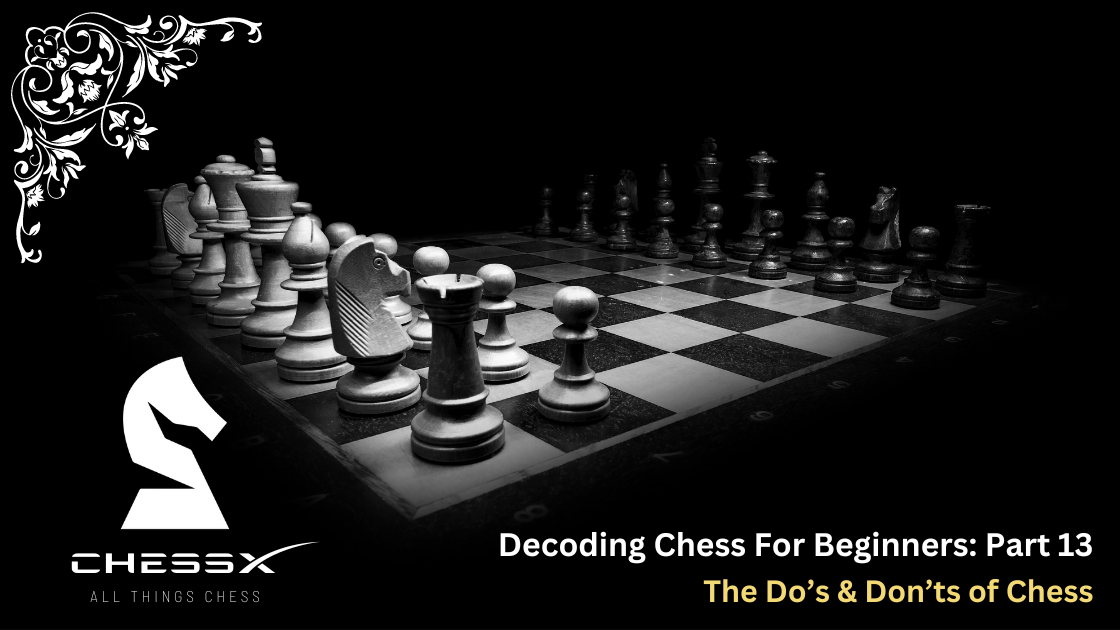Decoding Chess for Beginners: The Do's and Don’ts of Chess


In the thirteenth installment of the Chess for Beginners series, we will discuss The Do's and Don’ts of Chess. We encourage you to read the complete blog to gain the most from this discussion.
The Do's
The very first thing to do is to keep asking yourself questions. These questions should revolve around:
- What is my opponent up to?
- What are the motives behind their moves?
- Why are they moving the pieces that they are?
- Can I capitalize on my opponent's mistakes?
By continually asking yourself these questions and more, you can make progress in the game.
During the middle game, it is crucial to identify targets in your opponent's play. This phase requires attacking your opponent strategically. Keep a vigilant eye on their key pieces such as the queen and bishops, aiming to capture them as early as possible.
Simultaneously, monitor your own key pieces to prevent potential losses. Once you pinpoint your opponent's weaknesses, strategize and capitalize on them promptly.
It is important that you not lose your queen when you are trying to attack the opponent’s king. Trading your queen will turn into a big disadvantage for you. Try to hold on to your queen and take out your opponent’s queen using your knight or bishop.
The best strategy with your pawns is to push one during the end game and force your opponent to sacrifice a key piece to prevent the pawn from developing into a queen. The further in rank a pawn goes, the more value it develops in the game. It is best to push connected pass pawns together.
Don’t get overconfident during a game. If you think you have everything going for you and end up making a mistake, then you will probably lose all your confidence. Don’t overestimate your strategy; this is especially important if you are playing with a bona fide opponent. The opponent might know what you are up to and counter all your moves.
Do practice well before you attend a competition. Practice by yourself and also practice with an opponent. Memorizing some of the common situations will help you play well and fast. Make use of all the tactics that you know and use them throughout the game.
The Don’ts

An essential aspect of chess is avoiding the placement of two or more pawns in the same file, commonly referred to as doubling. It is crucial to maintain connected pawns and ensure they are not overly scattered. While it's imperative to claim the center of the board early, achieving this should involve not only your pawns but also incorporating other pieces such as knights and bishops.
If your opponent poses a threat to the rook, take precautions by placing intervening pieces to safeguard it. Be cautious not to fall into traps set by your opponent, particularly when considering sacrificing the rook to capture their piece with the king.
To access the entire blog, subscribe to our premium plans today and elevate your chess game to the next level. Get ChessX for all things chess